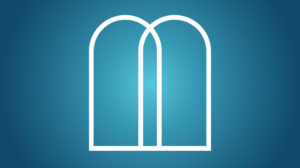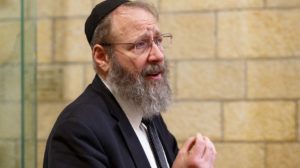A Century of Emunah

In this regard, Moshe Rabbeinu was no different from any other Yid

“Hashem, Elokim, You have begun to show Your servant Your greatness and Your strong hand, for who is [like] Hashem in heaven or earth?” (Devarim 3:24)
What’s the connection between the praise with which Moshe Rabbeinu begins his tefillah and his actual request to enter Eretz Yisrael?
Rabbeinu Bechaye explains that Moshe Rabbeinu was telling Hashem, “You showed me Your strong hand during Yetzias Mitzrayim and Krias Yam Suf. Then you showed me the nissim in the Midbar — the mahn, the be’er, the Ananei Hakavod, and most recently, the miracles fighting Sichon and Og. Please, let me go further and gain a complete picture of emunah by experiencing the miracles of entering Eretz Yisrael.” (Rav Elimelech Reznik, Parsha Preview)
Happy birthday, Ella!
Ella Blumenthal just celebrated her 100th birthday in Cape Town, South Africa. Yet despite this distinction, there’s much more to Ella than this milestone of becoming a centenarian. Born Hela Frank in Warsaw, August 1921, the youngest of seven in a frum family, she was forced into the Warsaw Ghetto before she turned 20. From there she was deported to Majdanek, then Auschwitz, then to Bergen-Belsen, where she was eventually liberated by the British army.
Here is her story.
“In the Warsaw ghetto, there was constant death, by starvation, disease, or the Germans. I lost almost my entire extended family. Through miracles, my father, my eldest niece, Roma, and I managed to hide in a makeshift bunker.
“Pesach 1943: I remember my father giving everybody a piece of matzah, which he’d saved from last year, and davening that Hashem should save us like He saved the Jews in Mitzrayim. The next morning the Warsaw Ghetto uprising began.
“We survived three weeks into the uprising, but then the Germans set fire to the entire ghetto to eliminate any survivors. Forced outside our bunker, we were blinded by daylight, having spent weeks underground. We were ordered to stand facing the wall, our hands up, and waited, expecting to be shot. I begged Hashem that I should be shot first before my father and Roma.
“Instead, we were marched to cattle trains. At dark, guards stormed in to yank out the young girls. My father covered Roma and me with his long coat. By sheer miracle, we weren’t taken to the extermination camp, Treblinka, but to Majdanek, a concentration camp.
“Immediately upon arrival, the older women and children were sent to the gas chambers. Then it was the older men’s turn. My father turned to give me a last look, then he was hit brutally on the head, knocking him down. That was the last time I saw him. Using the little strength I had left, I stood straight, and Roma and I were sent to the right — to life.”
It seems surprising that someone like Moshe Rabbeinu could be asking to gain greater clarity in emunah. Yet the Ramban in Shemos says that the reason Hashem performed nissim for Moshe Rabbeinu before he did them for Bnei Yisrael — the miracle of his stick becoming a snake, his hand covered with tzaraas — was to give Moshe himself chizuk in emunah and show him that the Hashem is HaKol Yachol.
“One day, the guards chased a group of us into the bathhouse. We knew it wasn’t a bathhouse, it was a gas chamber. The heavy doors shut behind us, and we knew that any minute the gas would enter and we’d die. We scraped the walls, we called for help, we screamed Shema Yisrael. Even today you can still see scratches on that wall. I held Roma’s hand and whispered, ‘Don’t be afraid, it won’t hurt. Soon we’ll join our loved ones.’
Then another miracle happened. Suddenly the doors opened. An SS man walked in shouting: ‘Quiet! You’re not going to be gassed.’ We later found out that an order had been received to gas 500 Jewish women, not 700 as we were.
“At dawn when we were chased out, there was a group of 500 women coming off the cattle trains; they were led straight into the gas chamber which we’d just left. Due to the German sense of precise order, we escaped the malach hamaves. We were put on those same trains those women came off and sent to Auschwitz.
“As we arrived in Auschwitz there was an orchestra playing, comprised of prisoners. We faced Dr. Mengele, the ‘angel of death,’ and our arms were tattooed. My number was 48632. Then they shaved off all our hair. I looked for Roma, calling her. She was right beside me, but I didn’t even recognize her.
“I worked building roads, carrying heavy stones, bags of sand, and cement. I don’t know how I managed to do this very heavy work. One day Roma begged me to join her, to throw ourselves on the electric wires. ‘Let’s end this struggle. It’s the only way to leave Auschwitz. Let’s join our loved ones.’
“But the desire to survive was strong within me. I wasn’t yet ready to die. I had always been a ‘macher.’ I used this strength to convince her that we had to survive, to tell the world what these murderers had done to us.
“In November 1944, I was transported to Bergen-Belsen. There, there was no need for gas chambers nor crematoriums; everyone was dying. The corpses were piling up everywhere. I was determined not to end up on top of this heap of corpses. And so, we survived, and in April 1945, we were liberated by the British army.
In this regard, Moshe Rabbeinu was no different from any other Yid. He’s kiveyachol saying to Hashem, “I’m in middle of learning about emunah! I already took courses 101 and 102 — Yetzias Mitzrayim through the Makkos and the Midbar, but there’s more. You started to show me Your nissim, but I’m only at the beginning. I’m in middle of shteiging; I have so much more growing to do here in this world!”
“After the war, my brother-in-law, Roma’s father, managed to get us both to Palestine. He listed me as his other daughter, Rivka Rotstein Hy”d, who perished in Treblinka. To this day, my passport says I was born as Rivka Rothstein. I’ve never changed it. I met my husband, a South African who was visiting Tel Aviv. Only 13 days after we met, we married.
“I know today I’m just an old lady, but I’m one of the last eyewitnesses. So I go and lecture, I tell people what I’ve seen, the horrors that I can never forget.
“I still often ask myself, why was I chosen to survive? I will never find an answer to this question. But despite all this, I’m not cross with the Ribbono shel Olam. What can I say? That’s how Hashem wanted it. I love Shabbos, I look forward to it all week. I go to shul. Most of my friends think I’m mad, crazy. ‘How can you still remain religious when you saw what happened to our parents and brothers and sisters?’ They come from very frum homes like mine. But today they’re not religious.
“But look what the Ribbono shel Olam has done. He took away so many souls. But we didn’t die! We’re still alive! We’re blooming, we’re growing from that little bit that was left. So much Yiddishkeit has come back! Baruch Hashem, look what’s happening!
“My message to the Jewish children, the next generation, is such: Never lose hope. You must always know there are miracles. I saw such miracles. I know Hashem is always around me. I’m never alone.”
(Originally featured in Family First, Issue 752)
Oops! We could not locate your form.





